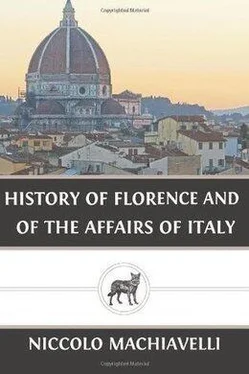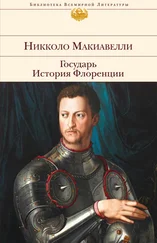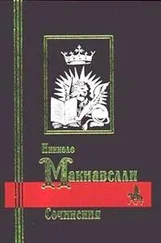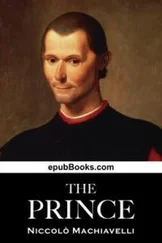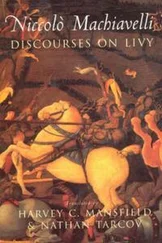In the meantime the Lombards, having drawn themselves together in Pavia, which was become the principal seat of their empire, made Clefis their king. He rebuilt Imola, destroyed by Narses, and occupied Remini and almost every place up to Rome; but he died in the course of his victories. Clefis was cruel to such a degree, not only toward strangers, but to his own Lombards, that these people, sickened of royal power, did not create another king, but appointed among themselves thirty dukes to govern the rest. This prevented the Lombards from occupying the whole of Italy, or of extending their dominion further than Benevento; for, of the cities of Rome, Ravenna, Cremona, Mantua, Padua, Monselice, Parma, Bologna, Faenza, Forli, and Cesena, some defended themselves for a time, and others never fell under their dominion; since, not having a king, they became less prompt for war, and when they afterward appointed one, they were, by living in freedom, become less obedient, and more apt to quarrel among themselves; which from the first prevented a fortunate issue of their military expeditions, and was the ultimate cause of their being driven out of Italy. The affairs of the Lombards being in the state just described, the Romans and Longinus came to an agreement with them, that each should lay down their arms and enjoy what they already possessed.
Beginning of the greatness of the pontiffs in Italy—Abuse of censures and indulgences—The pope applies to Pepin, king of France, for assistance—Donation of Pepin to the pontiff—Charlemagne—End of the kingdom of the Lombards—The title of cardinal begins to be used—The empire passes to the Germans—Berengarius, duke of Fruili, created king of Italy—Pisa becomes great—Order and division of the states of Italy—Electors of the emperor created.
In these times the popes began to acquire greater temporal authority than they had previously possessed; although the immediate successors of St. Peter were more reverenced for the holiness of their lives, and the miracles which they performed; and their example so greatly extended the Christian religion, that princes of other states embraced it, in order to obviate the confusion which prevailed at that period. The emperor having become a Christian and returned to Constantinople, it followed, as was remarked at the commencement of the book, that the Roman empire was the more easily ruined, and the church more rapidly increased her authority. Nevertheless, the whole of Italy, being subject either to the emperors or the kings till the coming of the Lombards, the popes never acquired any greater authority than what reverence for their habits and doctrine gave them. In other respects they obeyed the emperors or kings; officiated for them in their affairs, as ministers or agents, and were even sometimes put to death by them. He who caused them to become of more importance in the affairs of Italy, was Theodoric, king of the Goths, when he established the seat of his empire at Ravenna; for, Rome being without a prince, the Romans found it necessary, for their safety, to yield obedience to the pope; his authority, however, was not greatly increased thereby, the only advantage being, that the church of Rome was allowed to take precedence of that of Ravenna. But the Lombards having taken possession, and Italy being divided into many parts, the pope had an opportunity of greater exertion. Being as it were the head of Rome, both the emperor of Constantinople and the Lombards respected him; so that the Romans, by his means, entered into league with the Lombards, and with Longinus, not as subjects, but as equals. Thus the popes, at one time friends of the Greeks, and at another of the Lombards, increased their own power; but upon the ruin of the eastern empire, which occurred during the time of Heraclius, their influence was reduced; for the Sclavi, of whom we spoke before, again assailed Illyria, and having occupied the country, named it Sclavonia, after themselves; and the other parts were attacked by the Persians, then by the Saracens under Mohammed, and lastly by the Turks, who took Syria, Africa, and Egypt. These causes induced the reigning pope, in his distress, to seek new friends, and he applied to the king of France. Nearly all the wars which the northern barbarians carried on in Italy, it may be here remarked, were occasioned by the pontiffs; and the hordes, with which the country was inundated, were generally called in by them. The same mode of proceeding still continued, and kept Italy weak and unsettled. And, therefore, in relating the events which have taken place from those times to the present, the ruin of the empire will be no longer illustrated, but only the increase of the pontificate and of the other principalities which ruled Italy till the coming of Charles VIII. It will be seen how the popes, first with censures, and afterward with these and arms, mingled with indulgences, became both terrible and venerable; and how, from having abused both, they ceased to possess any influence, and were wholly dependent on the will of others for assistance in their wars.
But to return to the order of our narration. Gregory III. occupied the papacy, and the kingdom of the Lombards was held by Astolphus, who, contrary to agreement, seized Ravenna, and made war upon the pope. On this account, Gregory no longer relying upon the emperor of Constantinople, since he, for the reasons above given, was unable to assist him, and unwilling to trust the Lombards, for they had frequently broken their faith, had recourse to Pepin II., who, from being lord of Austria and Brabant, had become king of France; not so much by his own valor as by that of Charles Martel, his father, and Pepin his grandfather; for Charles Martel, being governor of the kingdom, effected the memorable defeat of the Saracens near Tours, upon the Loire, in which two hundred thousand of them are said to have been left dead upon the field of battle. Hence, Pepin, by his father's reputation and his own abilities, became afterward king of France. To him Pope Gregory, as we have said, applied for assistance against the Lombards, which Pepin promised to grant, but desired first to see him and be honored with his presence. Gregory accordingly went to France, passing uninjured through the country of his enemies, so great was the respect they had for religion, and was treated honorably by Pepin, who sent an army into Italy, and besieged the Lombards in Pavia. King Astolphus, compelled by necessity, made proposals of peace to the French, who agreed to them at the entreaty of the pope—for he did not desire the death of his enemy, but that he should be converted and live. In this treaty, Astolphus promised to give to the church all the places he had taken from her; but the king's forces having returned to France, he did not fulfill the agreement, and the pope again had recourse to Pepin, who sent another army, conquered the Lombards, took Ravenna, and, contrary to the wishes of the Greek emperor, gave it to the pope, with all the places that belonged to the exarchate, and added to them Urbino and the Marca. But Astolphus, while fulfilling the terms of his agreement, died, and Desiderius, a Lombard, who was duke of Tuscany, took up arms to occupy the kingdom, and demanded assistance of the pope, promising him his friendship. The pope acceding to his request, the other princes assented. Desiderius kept faith at first, and proceeded to resign the districts to the pope, according to the agreement made with Pepin, so that an exarch was no longer sent from Constantinople to Ravenna, but it was governed according to the will of the pope. Pepin soon after died, and was succeeded by his son Charles, the same who, on account of the magnitude and success of his enterprises, was called Charlemagne, or Charles the Great. Theodore I. now succeeded to the papacy, and discord arising between him and Desiderius, the latter besieged him in Rome. The pope requested assistance of Charles, who, having crossed the Alps, besieged Desiderius in Pavai, where he took both him and his children, and sent them prisoners to France. He then went to visit the pontiff at Rome, where he declared, THAT THE POPE, BEING VICAR OF GOD, COULD NOT BE JUDGED BY MEN. The pope and the people of Rome made him emperor; and thus Rome began to have an emperor of the west. And whereas the popes used to be established by the emperors, the latter now began to have need of the popes at their elections; the empire continued to lose its powers, while the church acquired them; and, by these means, she constantly extended her authority over temporal princes.
Читать дальше
